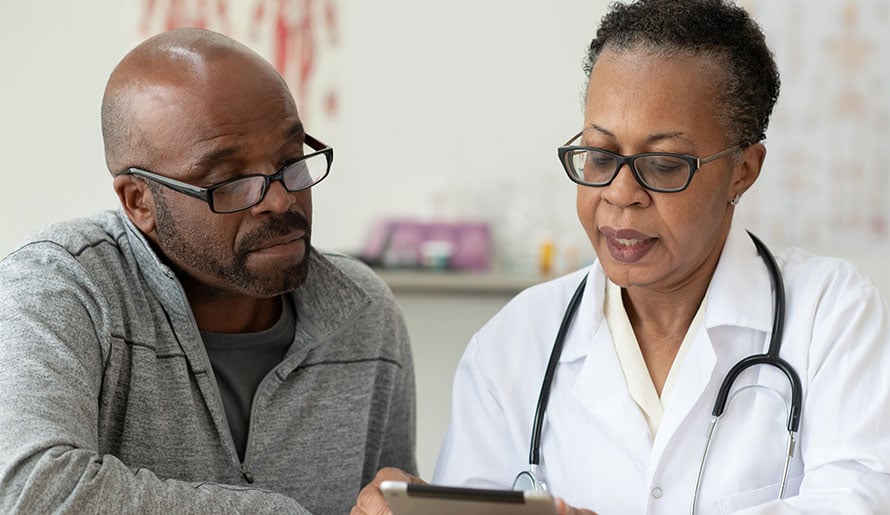Health Disparities Research: Elevating Cancer Care For All

As you may know, the George Edgecomb Society’s mission is to eliminate cancer health disparities among Blacks/African Americans. While our focus is on the Black/African American community, the research and programs funded by GES supporters like you will benefit everyone, regardless of their race or ethnicity.
This is because GES-funded initiatives will ultimately close the gap and elevate cancer care for all. By examining how cancer affects Black/African American patients differently, our researchers and physicians will have a better understanding of how to further personalize treatments for each and every person with cancer. In addition, community-based initiatives that provide education about early detection and prevention and improve access will help all underserved populations receive higher-quality cancer care.
Susan Vadaparampil, PhD, MPH, associate center director of community outreach, engagement, and equity at Moffitt, provides leadership for all of the cancer center’s outreach and education activities. Her vision for the department encompasses an expansive understanding of the impact health equity programs have on health care overall.
"It’s fundamental that our efforts benefit the most people possible, and so we have to consider the idea of equity in everything that we do," said Vadaparampil. "We need to be thinking from the get-go about how things work for unique populations, unique circumstances, etc. And we have to make sure that what we learn here at Moffitt reaches all of our community."
Investing in health disparities research and outreach isn’t just the right thing to do. In fact, this work is essential for raising health care across the board, according to Lee Green, PhD, vice president, Moffitt Diversity, Public Relations & Strategic Communications.
"Health disparities do not just impact those who are facing them," said Green, who oversees the GES initiative. "We are all connected. When the health issues of our vulnerable community members are not addressed it harms us all. There is a cost that we all pay in terms of the economy and the burden on our health care system."
From a practical standpoint, Green also recognizes that "the findings from these studies could have implications for other communities as well.”
Looking at the issue from a research perspective, two-time GES grant award winner Kosj Yamoah, MD, PhD agreed, saying, "Supporting health disparities research is supporting all of the research because a lot of things we’ve learned in the last 50 years have [come from] studying populations that were not studied in the past."
Yamoah can cite specific examples of this phenomenon, starting with research focusing on the BRCA gene: "Look at BRCA mutations in women with breast cancer. Drugs that work better for women with that mutation have been developed, and guess what? It was because somebody identified and studied it in a population of Ashkenazi Jewish women…50 years later, we have a drug for all women who have that mutation."
Similarly, GES-funded studies aimed at understanding and targeting cancer in the Black/African American community will lead to new discoveries that will benefit humanity as a whole, Yamoah said. "But with the acceleration of leading-edge research supported by GES, we do not have to wait 50 years for new discoveries and treatments. Without resources to fund these efforts, projects that could revolutionize care for Black/African American people and beyond cannot move forward."
As Cathy Grant, senior director, Moffitt Diversity, explained, "A healthy community benefits everyone, and to realize this goal, we need everyone to help us to secure the resources to consistently conduct research focused on closing the cancer health disparities gap."
You can help us make a difference by emailing foundationinfo@moffitt.org.
Community Research Updates
